Survive Money Troubles with these 6 Steps to Building Financial Resilience
This website may earn commissions from purchases made through links in this post.
Financial Resilience is your ability to adapt and survive financial hard times. We ALL face money troubles at some point in our lives. It helps to build resilience before you need it.

No one wants to live through difficult times. We all long for security; to live comfortably in the knowledge that tomorrow’s going be ok.
And if we’re honest with ourselves, we don’t hope that we can weather future storms: we pray for forever calm and smooth sailing.
Unfortunately, life is rarely smooth sailing. At some point, we ALL face some kind of hardships or money troubles. And it’s in our best interest to prepare now for the storms that life throws at us.
Resilience is the ability to withstand challenging life experiences and the capacity to adapt successfully in the face of adversity.
In other words, resilience helps you cope and recover when the SHTF (‘stuff’ hits the fan).
Below are the steps we can take now to build our financial resilience so that we can withstand and bounce back after economic (and other) setbacks and hard times.
1. Strengthen Relationships and Social Networks
A healthy relationship with other people and active participation in your community is essential for resilience.
Financial resilience is more than just money in the bank. Not only is the idea of the ‘self-sufficient man’ a myth, but isolating yourself is the opposite of resilience building.
Humans are a ‘herd animal’. We’re tribal. We are more successful and achieve more when working together, not alone. Civilization wouldn’t be possible if this weren’t so.
[Check out the book Social: Why Our Brains are Wired to Connect or the book The Social Leap: How and Why Humans Connect for some sciencey background on this.]
And yet, how often do we neglect our friendships and our family and our community because we’re too busy trying to get ahead?
Strong relationships not only make for a happier, healthier life, but they can also provide support in times of crisis and build resilience.
That support might come as a helping hand. It might be emotional support and encouragement (an ear to listen and a shoulder to cry on). Or it might be the wise advice we need to hear. Your social network can also help you find your next job or opportunity through word of mouth.
And of course, it works both ways. You are also there for your family and friends in their time of need.
An individual is only as strong as the community in which we live.
2. Reduce and Eliminate Debt
Owning assets outright (like your house) increases your security.
If you don’t owe any money on your house or car, you don’t have to worry about losing them if your income is reduced. Nor do you have to worry about how to make repayments.
If you don’t have credit card debt or personal loans, you can focus on meeting present and future expenses rather paying for past expenses. It’s harder to put food on the table, especially on a reduced income, if part of your income must go to servicing debt.
3. Build a Healthy Emergency Fund for Financial Resilience
An emergency fund is your short-term financial buffer against loss of income or unexpected expenses. It’s your peace of mind – your assurance that if you lose your job, for instance, you can feed the family and pay the bills until you find another one.
The bigger your emergency fund, the better prepared you are to weather financial storms.
4. Insure your Assets
Adequate insurance helps protect your financial security if your assets are damaged or lost.
When considering insurance, don’t forget home, contents, car, life and income insurance. Compare policies as well as premiums, which means reading the PDS of each insurer before you insure or renew and make sure you understand what is covered and what isn’t. Ask lots and lots of questions.
Also, take time to calculate how much insurance you need – under-insurance will leave you short should you need to make a claim.
5. Develop Ways to Supplement Your Main Income
When it comes to investment, we know that diversification limits risk. And yet most of us only have a single income stream (a job), or more importantly, a single skill (a career) and this leaves us vulnerable should we lose that job.
You can reduce this risk and build financial resilience, not by getting more than one job, but by diversifying your skill set to make yourself more employable or by enabling you to make money outside conventional employment.
That means continuous learning, both formal and informal. It means developing skills that can save your money or be turned into income.
Maybe you can tutor, or sew, or clean, or garden or fix things. Maybe you can declutter your house and sell your stuff.
The point is to take a good look at the skills you have presently and make a list of all the potential income streams that you can fall back on if you need to.
Then take a look at how you can improve the skills you have, and learn new ones to further strengthen your income earning potential.
6. Hone your Frugal Skills and Habits to Weather Money Troubles
Frugal habits are the vehicle for reducing debt and building an emergency fund. But they will also come in handy should you fall on hard times.
You will be better prepared if you develop frugal skills now than if you try to learn new skills when times are tough, and you’re stressed about everything else.
Start by honing your skills on feeding the family for less. How far can you stretch meals? Can you cook meals from scratch? Can you creatively use leftovers? Can you grow some food to supplement what you buy?
Then look at skills and habits that will reduce your consumption. Can you entertain yourself and the family without electricity? Could you get by without a washing machine? Can you get by on less water? Can you shop second hand? Can you make do, recycle, reuse, and reinvent? Can you mend or repair the things you own? Build or make things yourself?
All of these skills build your resilience and will see you in a better position in times of money troubles.
Future uncertainty can be a scary thing. But it’s also a fact of life. You can ignore it, or you can let worry eat at you to the point of inaction.
Or you can take measures to prepare against future uncertainty and then rest assured that when money troubles arise, you have done the best you can to prepare for them and this preparation will see you safely through.
Do you take steps to build financial resilience?

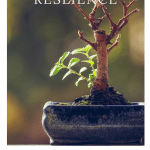


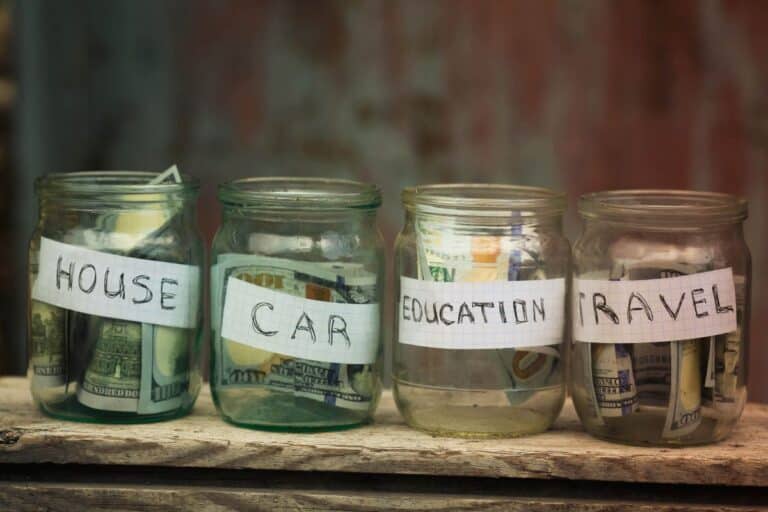
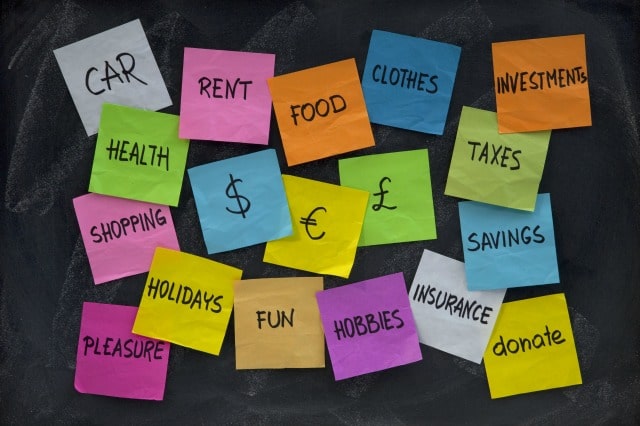
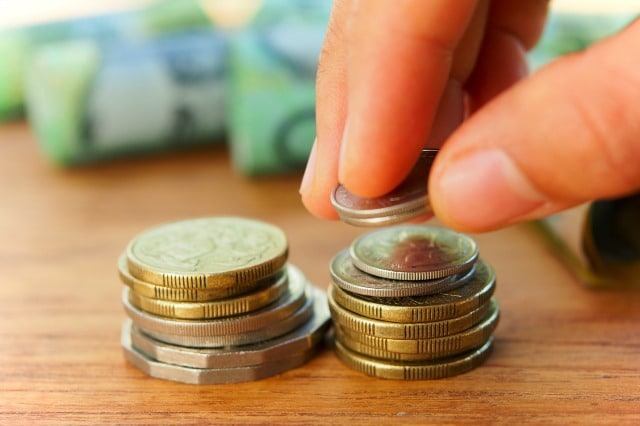
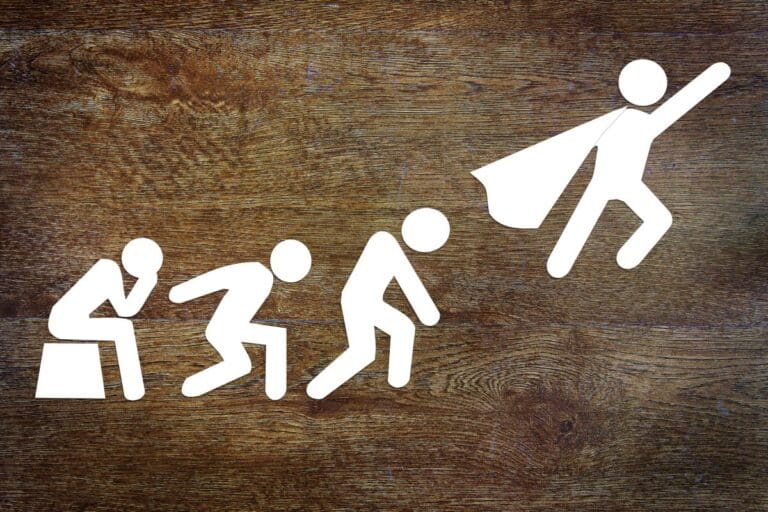
How lovely to have you back! This article really hits home as companies are restructuring which means lay offs, natural disasters are happening (NSW bushfires) and the GFC is still alive and well in many countries today. When I faced a possible job loss earlier this year, my husband and I immediately cut back and began living on one income with the second going straight to savings. We have a large emergency fund. But that didn’t seem to be enough. We cleaned the house top to bottom and sold everything that we weren’t using which further added to savings and a nice de-cluttered home. We also made a list of different areas of our financial life and ways that we could save money (food, insurance costs, even selling our car as we both walk to and from work). The great news is I didn’t lose my job, but even better we are in the best financial situation that we have been in years. And instead of reverting back to our old ways, we’re going to continue on this life of frugality and make sure that in the event of a disaster financial or otherwise, we will certainly be prepared.
That’s awesome Jennifer! Glad you didn’t lose your job. It feels great when you know that you’re prepared!
Hi Melissa,
I find your words inspiring and really helpful for people like Jennifer, me and many others.
Having an emergency fund is really important because as we all know, life rarely go as planned.
It is important to place that emergency fund somewhere with easy access but getting the best out of it. I’ve been recently in a similar situation and I’ve found the following information really useful.
1. Online bank. Due to lower overhead costs, online banks such as Ally Bank and Capital One 360 can offer better interest rates than traditional brick-and-mortar banks. According to recent data from MoneyRates.com, Ally’s average savings account rate is approximately 0.87 percent, and Capital One’s is about 0.68 percent.
While such rates are still relatively low, they’re better than what you’ll get at a traditional bank – and with debit cards and other conveniences, accessing your money in these accounts is easy.
2. Mango Money Card savings account. Prepaid cards aren’t for everyone, but the Mango Money Card comes with some nice perks, including attractive rates on its savings account. If you set up direct deposit on your Mango Money Card, you can open an attached savings account that will earn 6 percent interest on the first $5,000. Customers without direct deposit can earn 2 percent on the first $5,000, which is still significantly higher than average rates – even for online banks.
After the first $5,000, the interest rate drops to 0.10 percent. As such, it’s not the best option if your emergency fund significantly exceeds that amount, but if you’re just getting started saving for an emergency fund, this can be one viable way to do it.
3. No-penalty certificate of deposit. Regular CDs are set up to hold money for a certain amount of time. If you pull the cash out before the designated time period is up, you could pay a lot of money in penalties. This lack of liquidity rules out regular CDs as a sound emergency fund option.
However, no-penalty CDs offer better-than-average rates and don’t penalize for withdrawing money early. Rates can start to approach 1 percent, though no-penalty CD rates are normally lower than rates for traditional CDs. Be sure you read the fine print, so you know what “no penalty” means.
4. Pay down revolving debt. My wife and I used this approach when we were climbing out of debt. Rather than storing an emergency fund in a savings account, we used our extra cash to pay down our home equity line of credit. The interest rate on the line of credit was higher than what we could earn on a savings account, and if we encountered an emergency, we could have easily pulled the money out.
5. Money market account. Like savings accounts, money market accounts are generally insured up to $250,000 by the Federal Deposit Insurance Corporation, but banks have more freedom when investing funds in an MMA. This means they tend to come with higher interest rates.
I hope you find this useful too! :)
Oscar from SortMySuper.com.au
http://sortmysuper.com.au